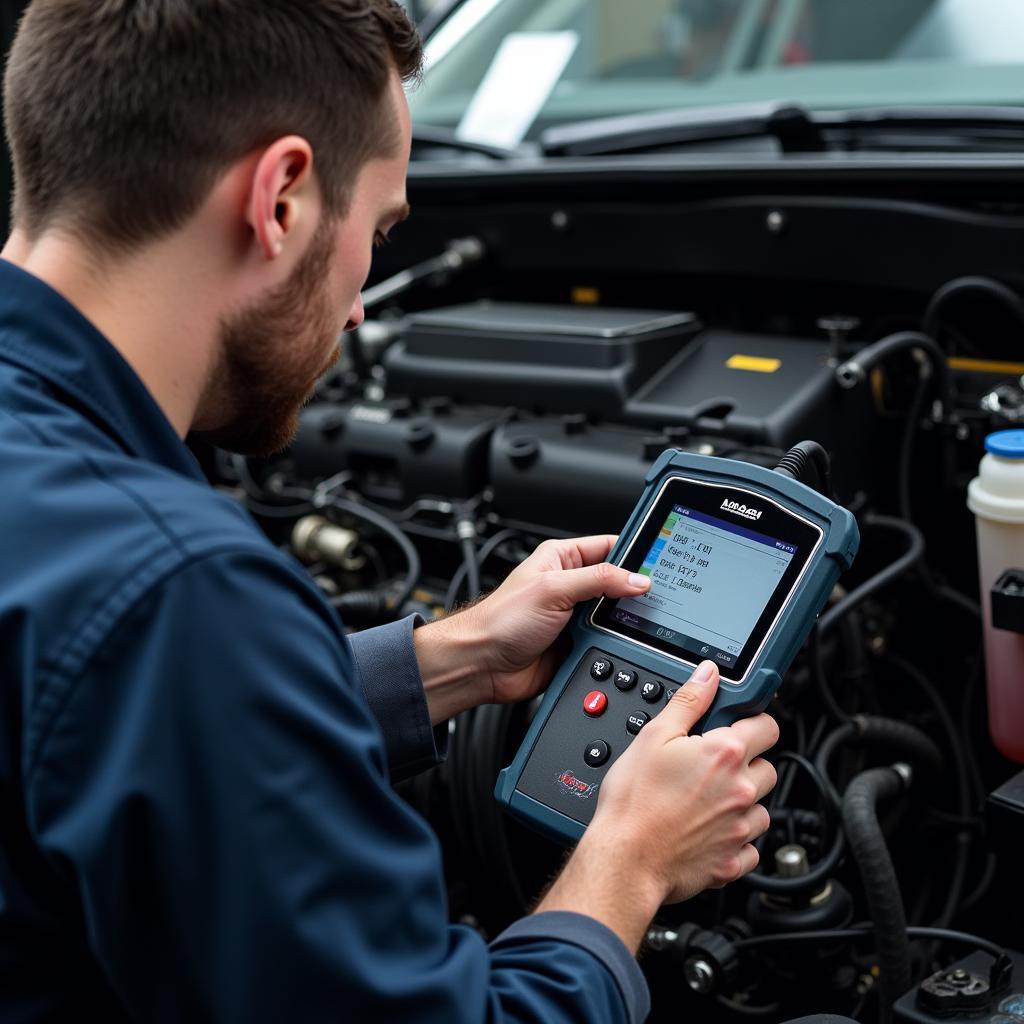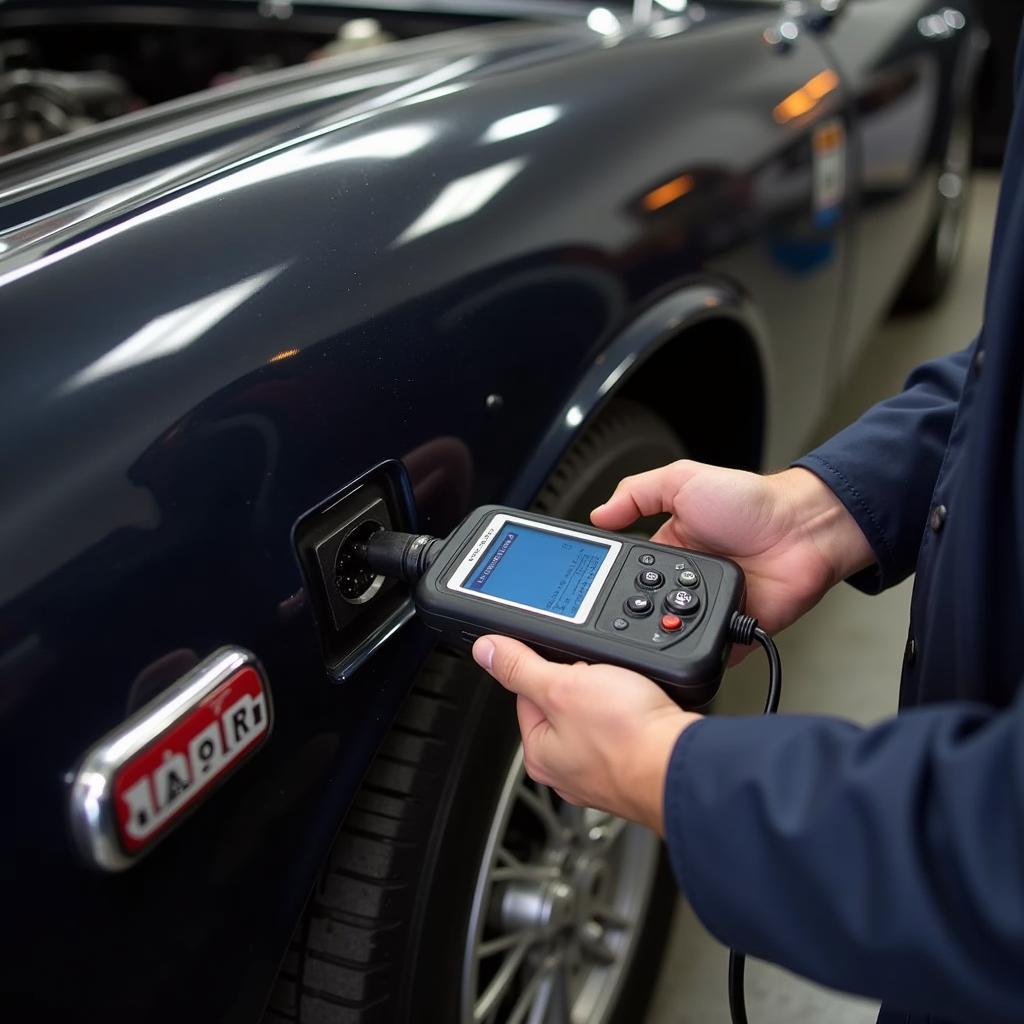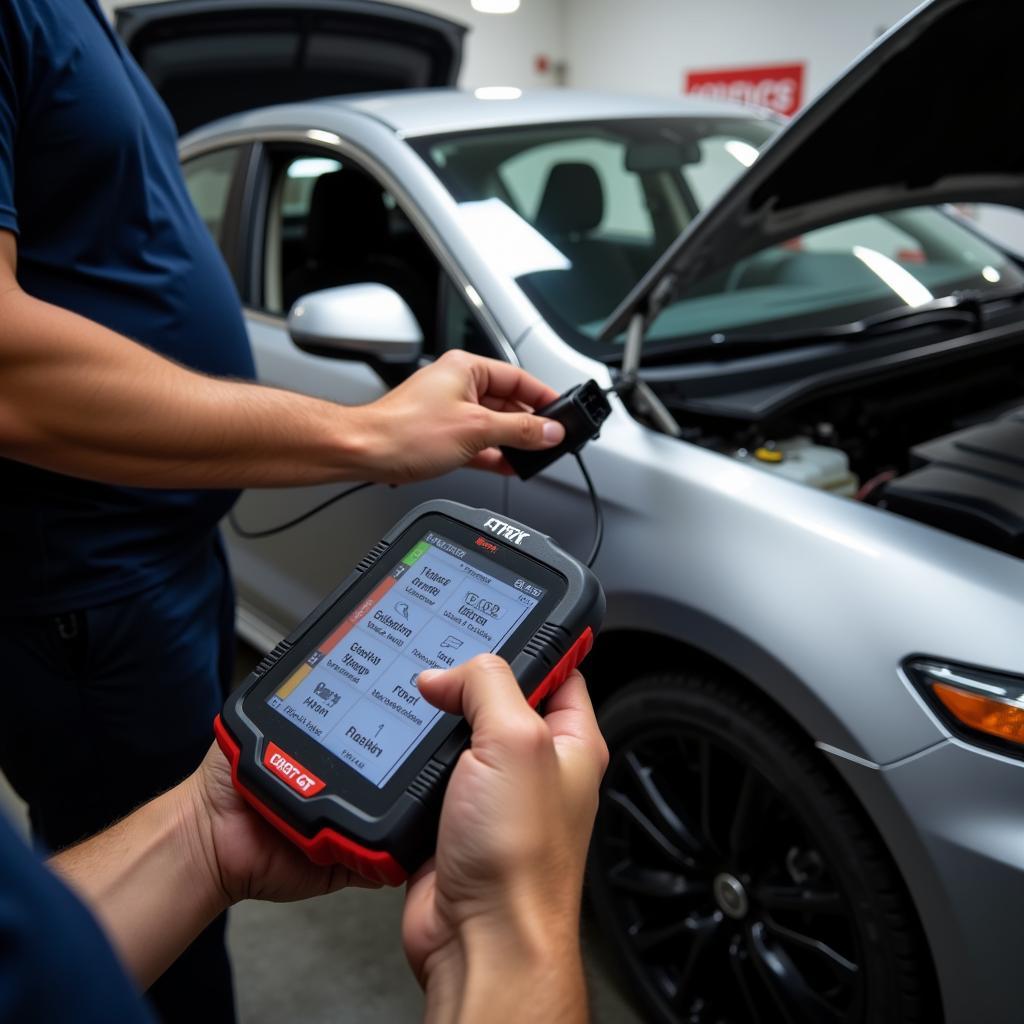Sleep apnea, a common sleep disorder characterized by pauses in breathing or shallow breaths during sleep, can have serious health consequences if left untreated. Accurately diagnosing sleep apnea is crucial for effective treatment, and this relies heavily on using the right Sleep Apnea Diagnostic Tools. This guide will explore various methods and technologies employed in diagnosing this condition, helping you understand the process and make informed decisions about your health.
Similar to how a mechanic uses specialized tools to diagnose car problems, medical professionals utilize various sleep apnea diagnostic tools. These tools help identify the type and severity of sleep apnea, guiding treatment decisions. three diagnostic tools used in diagnosing respiratory diseases Understanding these tools is essential for both patients and healthcare providers.
Understanding Sleep Apnea and its Types
Sleep apnea is broadly classified into three main types: Obstructive Sleep Apnea (OSA), Central Sleep Apnea (CSA), and Complex Sleep Apnea Syndrome, which is a combination of both. OSA occurs when the airway becomes blocked during sleep, while CSA involves a malfunction in the brain’s signals that control breathing. Knowing the difference between these types is crucial for selecting appropriate sleep apnea diagnostic tools and treatment strategies.
How is Sleep Apnea Diagnosed?
Diagnosing sleep apnea typically begins with a thorough medical history and physical examination. Doctors will inquire about sleep patterns, snoring, daytime sleepiness, and other related symptoms. Based on this initial assessment, they may recommend one or more sleep apnea diagnostic tools for a definitive diagnosis.
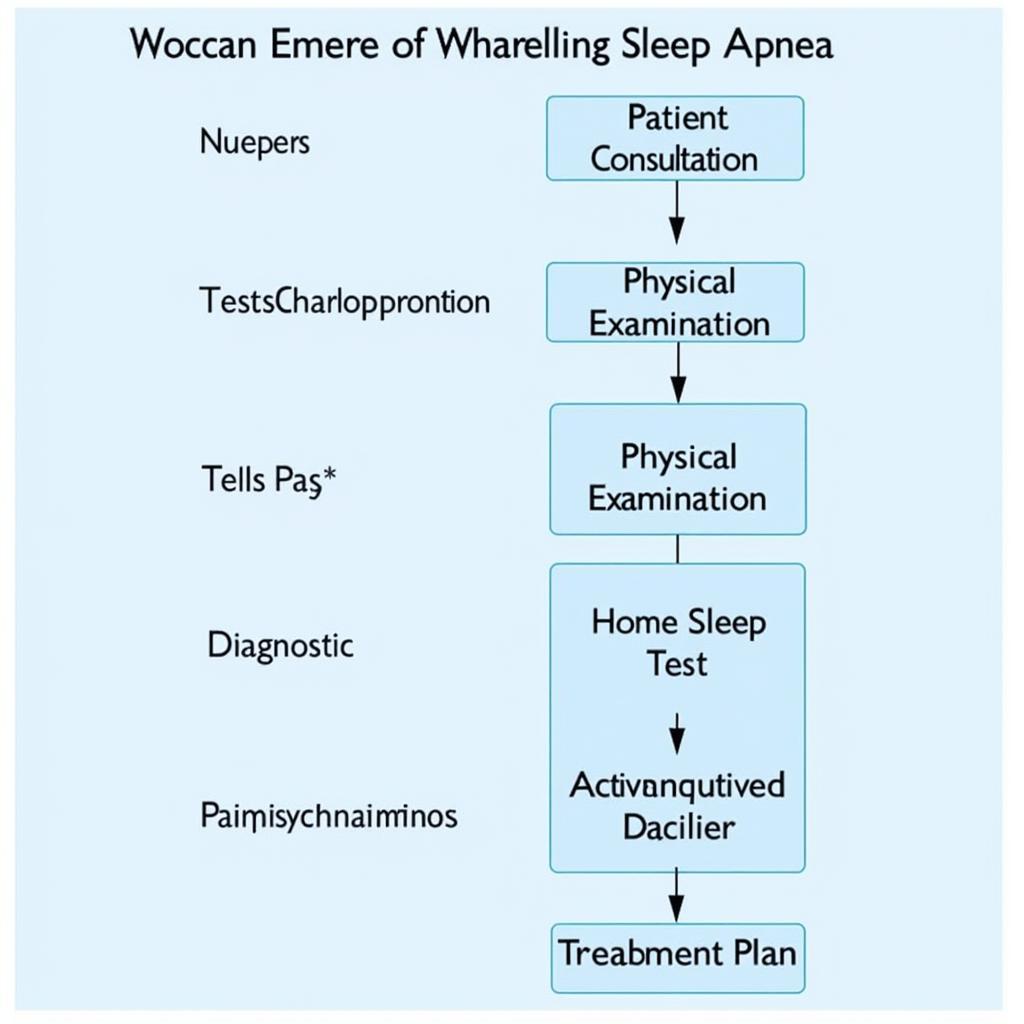 Sleep Apnea Diagnosis Process: From Initial Consultation to Final Diagnosis
Sleep Apnea Diagnosis Process: From Initial Consultation to Final Diagnosis
Home Sleep Tests (HSTs)
Home sleep tests are portable sleep apnea diagnostic tools that allow individuals to be tested for sleep apnea in the comfort of their own homes. These devices monitor various parameters, such as breathing patterns, blood oxygen levels, and heart rate. HSTs are a convenient and cost-effective option for diagnosing OSA, but they may not be suitable for everyone, especially those with other underlying health conditions.
Polysomnography (PSG)
Polysomnography, also known as a sleep study, is a comprehensive test conducted in a sleep laboratory. It involves monitoring various physiological parameters, including brain waves, eye movements, muscle activity, heart rhythm, and breathing patterns, during sleep. PSG provides detailed information about sleep stages and disruptions, making it the gold standard for diagnosing all types of sleep apnea.
“Polysomnography is invaluable for accurately diagnosing and classifying different sleep apnea types,” says Dr. Emily Carter, a sleep medicine specialist at the Sleep Disorders Center. “Its comprehensive data allows for personalized treatment plans.”
Other Diagnostic Tools
Besides HSTs and PSG, other sleep apnea diagnostic tools may be employed depending on the individual’s circumstances. These include oximetry, which measures blood oxygen levels, and actigraphy, which monitors sleep-wake cycles. These tools can provide additional information and support the diagnosis of sleep apnea.
The Importance of Early Diagnosis
Early diagnosis of sleep apnea is crucial for preventing or managing potential complications, such as cardiovascular disease, diabetes, and stroke. Utilizing appropriate sleep apnea diagnostic tools can lead to timely interventions and improve long-term health outcomes.
“Early detection through appropriate diagnostic tools is key to effectively managing sleep apnea and mitigating its associated risks,” says Dr. Michael Roberts, a pulmonologist specializing in sleep disorders. “Don’t hesitate to seek professional help if you suspect you have sleep apnea.”
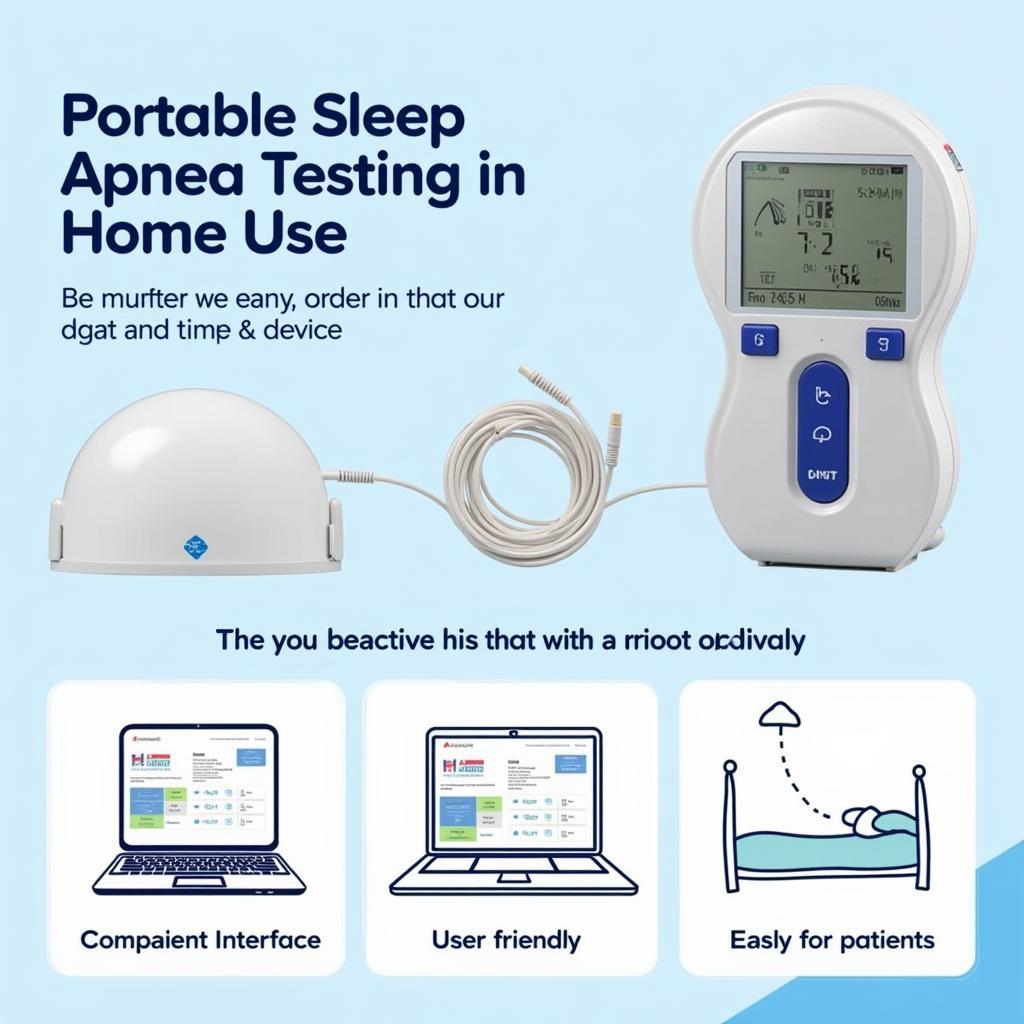 Portable Sleep Apnea Testing Device for Home Use: Compact and User-Friendly Design
Portable Sleep Apnea Testing Device for Home Use: Compact and User-Friendly Design
Conclusion
Sleep apnea is a serious sleep disorder that requires prompt diagnosis and treatment. Various sleep apnea diagnostic tools are available to accurately identify the type and severity of the condition. Understanding these tools can empower individuals to seek appropriate medical care and improve their sleep quality and overall health. If you are concerned about sleep apnea, contact ScanToolUS at +1 (641) 206-8880 or visit our office at 1615 S Laramie Ave, Cicero, IL 60804, USA. We can connect you with resources and information to address your concerns.

